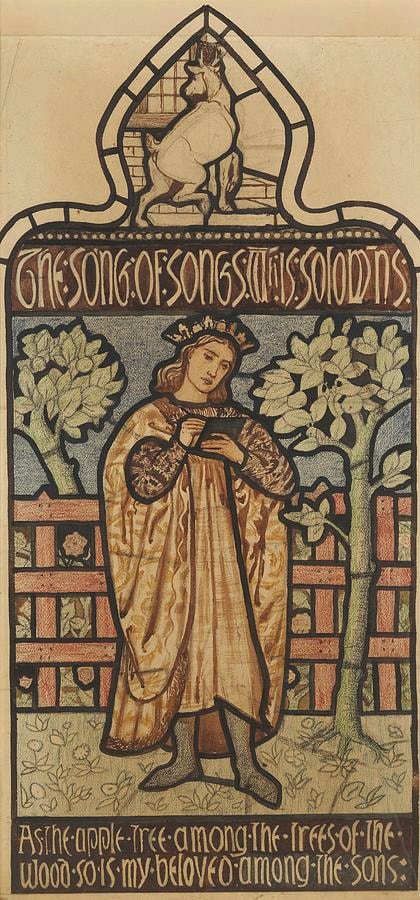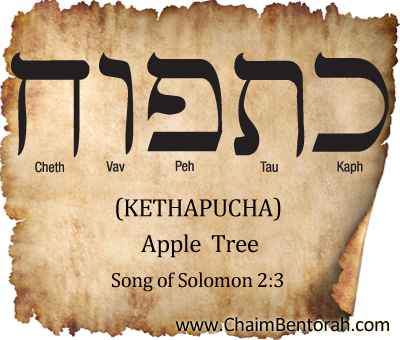“Everyone then who hears these words of mine and does them will be like a wise man who built his house on the rock. And the rain fell, and the floods came, and the winds blew and beat on that house, but it did not fall, because it had been founded on the rock. And everyone who hears these words of mine and does not do them will be like a foolish man who built his house on the sand. And the rain fell, and the floods came, and the winds blew and beat against that house, and it fell, and great was the fall of it” (Matthew 7:24–27).
Character is truly the lifeblood of a Christ-follower because it flows from the heart. Like a tree planted by streams of water, it grows the more time we spend with God reading His Word, meditating on its meaning, praying for discernment, and applying its wisdom.
“The LORD is my shepherd; I shall not want. He makes me lie down in green pastures. He leads me beside still waters. He restores my soul. He leads me in paths of righteousness for his name’s sake” (Psalm 23:1–3).
Keep in mind, God never commands us to “be humble.” Rather, He instructs us to own our faith, trust in His will for our lives, and seek opportunities to put our faith into action by intentionally humbling ourselves before others.
“If my people who are called by my name humble themselves, and pray and seek my face and turn from their wicked ways, then I will hear from heaven and will forgive their sin and heal their land” (2 Chronicles 7:14).
“Humble yourselves before the Lord, and he will exalt you” (James 4:10).
“For everyone who exalts himself will be humbled, and he who humbles himself will be exalted” (Luke 14:11).
Humility is the antithesis of pride. It requires putting the needs of others before our own and becoming a servant to all so Christ would be glorified. In many ways, humility in the fruit we bear testifies to the true root of character in our hearts.
Therefore, just as the average fruit tree which takes 3-5 years to grow before bearing fruit, Godly character takes time to develop deep roots, a strong trunk base, and healthy branches before producing leaves, blossoms and fruit.
However, the challenge with humility is we desire instant results with as little effort as possible. We’re unwilling to wait patiently as God refines our character through the fire of trials where faith is distinguished and our impurities (selfishness) cleansed from all unrighteousness.
“In this you rejoice, though now for a little while, if necessary, you have been grieved by various trials, so that the tested genuineness of your faith—more precious than gold that perishes though it is tested by fire—may be found to result in praise and glory and honor at the revelation of Jesus Christ” (1 Peter 1:6–7).
It is an indescribable feeling coming to faith in Christ. The sacrifice Jesus made, taking upon Himself the eternal judgment for our sin by dying in our place so we could be made clean and reconciled for eternity with the Father, is unfathomable and extraordinary. Yet He offered His life freely because He loves us, which paints a beautiful picture of what marriage should look like this side of heaven.
“Greater love has no one than this, that someone lay down his life for his friends” (John 15:13).
When we reflect upon Song of Solomon 3:4, our hearts should immediately think of Jesus because He pursues us with an everlasting love. For He is our bridegroom and we (the church) are His bride, and He will stop at nothing to restore and redeem our souls to the Father.
“So he (Jesus) told them this parable: “What man of you, having a hundred sheep, if he has lost one of them, does not leave the ninety-nine in the open country, and go after the one that is lost, until he finds it? And when he has found it, he lays it on his shoulders, rejoicing. And when he comes home, he calls together his friends and his neighbors, saying to them, ‘Rejoice with me, for I have found my sheep that was lost.’ Just so, I tell you, there will be more joy in heaven over one sinner who repents than over ninety-nine righteous persons who need no repentance”” (Luke 15:3–7).
Therefore, as men, we should strive to emulate Christ’s example, but first we must reconcile our hearts to God and proclaim, “I have found the one whom my soul loves!” Why? Because love comes from the Father, and if we do not know Him, we’ll never truly understand how to love our wives as Christ loves the church.
“Beloved, let us love one another, for love is from God, and whoever loves has been born of God and knows God. Anyone who does not love does not know God, because God is love” (1 John 4:7–8).
HEBREW WORD STUDY – APPLE TREE – KETHAPUCHA כתפוח
Kap Taw Pei Vav Cheth. Song of Solomon 2:3: “As the apple tree among the trees of the wood, so [is] my beloved among the sons. I sat down under his shadow with great delight, and his fruit [was] sweet to my taste.”
This verse is taken from a story which is an allegory of God’s relationship with us as the believer. It is a love story of a King, believed to be Solomon, who is in love with a peasant woman identified as just the Shulamite woman. This is a forbidden love as the Jewish Midrash teaches she was betrothed to a shepherd but as in any story of romance, love conquers all.
In Chapter 2 of the story of the Song of Solomon King Solomon and the Shulamite woman are sharing their thoughts with us, the readers, about the nature of their love for each other. In verse 3 the Shulamite woman is speaking and she declares that her beloved, King Solomon, is like an apple tree among the trees in the woods or forest. This verse points out that the tree is her beloved and the woods are the sons. In Semitic literature, one is referred to as a son even if there is no blood relationship. Even today in the Middle East one of the greatest compliments one gives you is if they say: “You are my brother.” If there is a wide age difference they will say: “You are my son.” This is not to say you are a blood relative but that they feel as devoted to you as if you were a blood relative. We do the same in our culture saying someone is like a brother or son to us only in the Middle East they don’t say like or as but simply say “you are.”
So, among all the trusted men in the royal court, her beloved is like an apple tree. The word apple tree in Hebrew here is kethapucha from the root word napach. This is a loan word from the Persian language which means an apple or apricot. In Hebrew, it carries that idea as well as being a word for an apple tree. It is also a word for exhaling and blowing. It is also used to express the idea of speaking directly to someone, not through a proxy. In a way, she is saying that it is his breath, his words that she only wishes to hear, not the opinions of his friends or servant. Another idea is that she can go directly to her beloved without having to go through a lot of red tapes and trying to get past guards and gatekeepers. The very breath of the King welcomes her into his court. The King is the apple tree, the one she wants to communicate with. All the king’s’ horses and all the king’s men could not keep her from her beloved. When she enters the court of King Solomon she can approach him directly. Another thought that has been put forward is that an apple tree offers very little shade compared to the other trees of the forest. She is interested only in the fruits of his character where others just want his protection and will go to anyone who can provide better protection. Their loyalties lie in what it means to them, her loyalty lies in her love for the King.
But the Midrash points out something that I really like and I believe that is the interpretation I would go with. The buds to the fruit of an apple tree sprout before the leaves come. Usually, it is the leaves that come first to provide nourishment to the tree to produce the fruit. The Midrash points out that the leaves represent hearing the Word of God and the fruits are our good works. Good works usually come after studying the Word of God but good works do not have to wait until you have a full understanding of the Word of God. That is an interesting thought. We need a foundation of the Word of God before we minister, but nothing says we cannot do some type of work for God while we are growing in our knowledge of God’s Word.
Another way to look at it is that the Shulamite woman did not have to wait for the permission of the leaves or the other trees, she was able to go directly to the king, her beloved. This is just like our relationship with Jesus, we have the right to go directly to Jesus with our request and petitions because we are His bride His beloved.
The rest of the verse talks about sitting down in His shadow. The preposition “in” is not in the text it is simply I desire His shadow. But without the preposition, the object would not be a shadow but Him. She delights in Him and the Shadow or shade He creates for her is just a byproduct. It is the King she delights in and welcomes his shadow which is a symbol of protection.
The word delight in Hebrew is chamad which means to covet or desire. Her desire is the King, the shadow is a fringe benefit. So too in our relationship with Jesus. Is our delight or desire just for His protection, for what He can give us? Or is our desire just for Him and anything else is just a fringe benefit?
Jesus is our Apple Tree that we go to for shade or protection. But suppose there are protections out there that seem more secure than Jesus. Will we abandon Him for the other trees which seem to offer more in the line of protection and what we want? Or are we satisfied with what protection we get because our chamad or desire is for Him, not the shade he provides?
https://www.chaimbentorah.com/2020/09/hebrew-word-study-apple-tree-kethapucha/


 RSS Feed
RSS Feed
























































